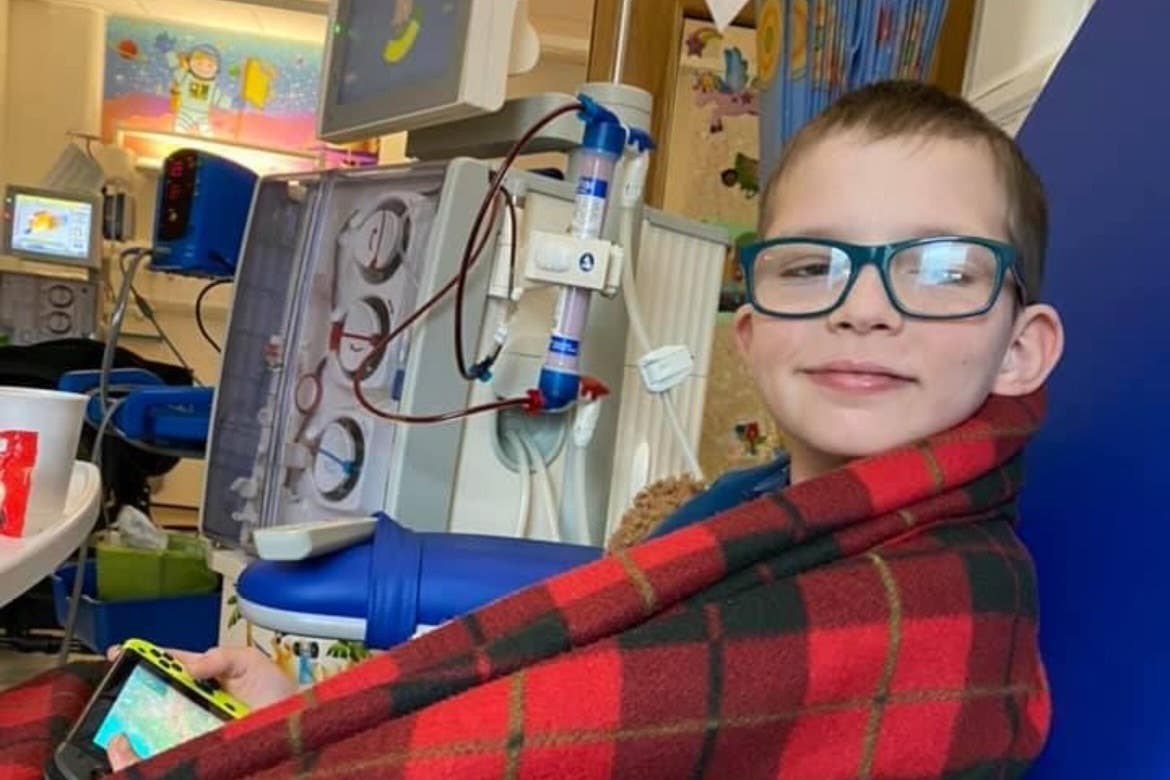Family thank living donor after 11-year-old boy’s kidney transplant
Reece Sinclair underwent the operation last month after years of dialysis and other treatment.

Your support helps us to tell the story
From reproductive rights to climate change to Big Tech, The Independent is on the ground when the story is developing. Whether it's investigating the financials of Elon Musk's pro-Trump PAC or producing our latest documentary, 'The A Word', which shines a light on the American women fighting for reproductive rights, we know how important it is to parse out the facts from the messaging.
At such a critical moment in US history, we need reporters on the ground. Your donation allows us to keep sending journalists to speak to both sides of the story.
The Independent is trusted by Americans across the entire political spectrum. And unlike many other quality news outlets, we choose not to lock Americans out of our reporting and analysis with paywalls. We believe quality journalism should be available to everyone, paid for by those who can afford it.
Your support makes all the difference.A mother has thanked an anonymous live kidney donor for changing her son’s life after his successful transplant operation.
Reece Sinclair, 11, from Kirkintilloch in East Dunbartonshire, underwent the operation last month after years of dialysis and is recovering well.
It was the 300th successful kidney transplant operation at the children’s hospital in Glasgow since the programme started in 1977.
Reece’s family have thanked the Royal Hospital for Children (RHC) and the donor for changing his life.
His mother Mary said: “The staff here for us are family, Reece has been here since he was a baby. They have been absolutely amazing.
“We would also like to thank the person who decided to donate their kidney, we can’t describe how big an impact this has had on Reece’s life. We can’t thank them enough for this.
“When Reece was born he didn’t have properly formed kidneys, one was too big and the other was too small, he also had bladder issues which caused urine infections and scarring on the kidneys.
“Throughout the years, we monitored his condition and levelled things out through diet and medication that lasted for a good few years, along with surgery.
“In recent years he was on dialysis, some of which was three days a week on the ward. It was a scary time, but in January this year, he received his new kidney from a live donor.”
She urged people to donate their organs if possible.
She said: “It’s very important that people donate their organs if they can, it’s changed his life and the lives of the whole family. It’s been amazing, I didn’t expect him to recover so quickly. The day after his surgery, he looked so different, he looked so well.
“He has been restricted on his diet since he was three, so him being able to eat things that everyone else is having is amazing, it’s those small things that also make a huge difference.”
The hospital’s transplant programme was previously located at Yorkhill in the city’s west end before moving to the Queen Elizabeth University Hospital campus in 2015.
Reece’s operation was also the first National Kidney Sharing Scheme transplant at the RHC.
The programme is designed to increase the number of people who can receive transplants from living donors and also gives more opportunities for transplants to those who have been waiting longer for a kidney.
Doctor Ben Reynolds, paediatric kidney specialist at the RHC, said: “As we reach this amazing landmark of 300 kidney transplants, we can reflect on the number of lives that have been changed thanks to those who decide to donate kidneys and the team of specialists here in Glasgow.
“I’ve known Reece for so many years now and his transformation since having his transplant is remarkable, we’re all delighted to see him doing so well.”